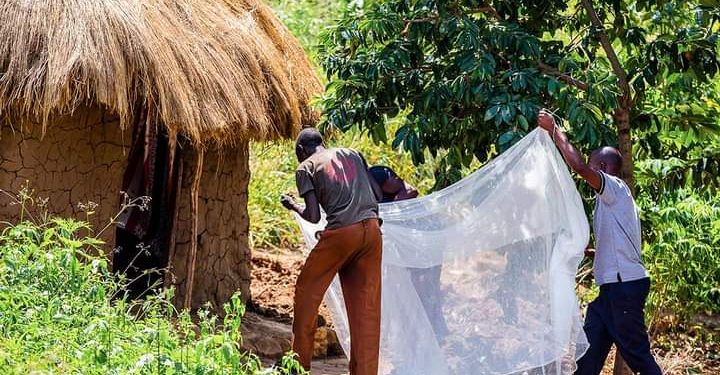Malaria continues to be the biggest killer in Uganda according to medical reports. This is according to the World Malaria Report released on Monday.
The report shows that Uganda contributed to five percent of the globally reported cases and three percent of the reported deaths. 12,270 deaths were reported in the country and 299 million cases recorded globally.
Dr Jimmy Opigo, the programme manager of the malaria control programme at the ministry of health says the high number of cases that were registered last year was expected.
He says despite the rise, the country is moving in the right direction to have zero malaria deaths by 2030.
Opigo says they believe the numbers will reduce in 2020 following the on-going mosquito net distribution campaign.
According to the Ministry of Health, the prevalence of Malaria had in the country risen from 8.3 percent in 2018 to 15 percent in 2019.
Dr Henry Mwebesa, Director General Ministry of Health says the increase in cases and deaths is a surprise.
Dr Opigo says the country is now resorting to using multiple interventions to curb the high numbers of cases associated with the disease.
Government is currently carrying out a mosquito net mass distribution campaign where 27.5 million nets are estimated to be given out.
Despite this approach, public health specialists like Prof Freddie Ssengooba are of the view that the government is using the wrong approach to fight the disease in the country.
Indoor residue spraying is being carried out mainly in five districts in the North. According to the Economic Policy Research Center, if the government were to carry out national indoor residue spraying, it would need 235 billion shillings. Uganda’s budget for malaria is 443 billion, 46 percent of which is spent on buying drugs.
The report shows that African countries are not making any steady progress towards eliminating malaria. According to the report, little or no progress has been made by many African countries to eliminate the disease by 2030.
Data shows that since 2000 when African leaders signed the Abuja declaration pledging to reduce malaria deaths on the continent by 50 percent over 10 years, little achievements have been met. 20 years later, the number of malaria deaths reported on the continent has reduced by 44 percent.
Dr Tedros Adhanom Ghebreyesus, the Director-General of WHO says African countries leaders need to do more .
Dr Matshidiso Moeti, the WHO Africa director says that the on-going COVID-19 pandemic is bound to make matters worse.











